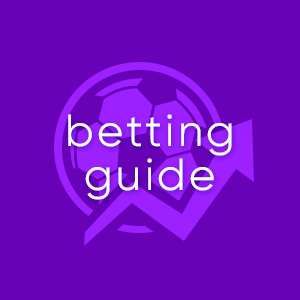Walk into any sportsbook and you’ll hear two competing narratives every single day of the week. One bettor will swear they have an edge through research, while another will laugh in their face, calling it all luck.
So, which is it: is betting a skill you can master or just glorified coin-flipping?
Defining the Debate: Skill vs. Luck in Betting
Skill involves using knowledge or abilities to influence an outcome, while luck refers to random processes that happen without method.
A coin toss is pure luck because no amount of analysis can change the 50/50 odds. But what about sports betting?
The Case for Betting as a Skill
Strategic Game Theory and Expected Value
Skilled bettors hunt for positive expected value (EV). If you believe a team has a 55% chance of winning but the odds imply only 50%, that’s a positive EV bet worth taking repeatedly.
They aren’t trying to predict every outcome correctly; they’re looking for situations where bookmaker odds don’t accurately reflect true probability.
Data Analysis, Modelling, and Research
Experienced wagerers build statistical models that account for team performance, player matchups, weather conditions, and historical trends. By taking a more data-driven approach, they don’t leave anything to chance; they hedge bets at every turn.
Discipline, Bankroll Management & Emotional Control
Professionals use techniques like the Kelly Criterion to determine optimal bet sizing based on their perceived edge. They don’t chase losses or rack up bets after wins. Instead, they stick to their system through both hot streaks and cold runs, understanding that short-term variance doesn’t invalidate their long-term edge.
Real Examples of Skilled Bettors
Billy Walters used sophisticated computer models and analyst teams to gain edges for decades. He didn’t just get lucky — he systematically identified and exploited market inefficiencies. The catch? Even professionals lose nearly half their bets, surviving on slim profit margins of 3-5% over thousands of wagers.
The Luck Argument: Chance’s Dominance
Random Events and Variance in Outcomes
No amount of research predicts a freak injury in the first quarter or a controversial referee call. Sports are filled with random events like a basketball bouncing weirdly off the rim, a fumble on a dry day, and an impossible goalie save. Research shows that even in skill-based competitions, luck plays a measurable role in short-term outcomes.
Small Sample Effects vs. Long-Term Patterns
A 2006 study analyzing NFL betting data found that skill accounted for approximately 52.5% of outcomes versus 47.5% for luck over 1,000+ wagers.
That slight skill edge only emerges over huge sample sizes that casual bettors never reach. Even skilled gamblers need 1,500 or more hands of play before their edge becomes statistically significant.
Role of Unexpected External Factors
Betting markets can’t predict everything. Don’t forget that a player’s personal issues, locker room conflicts, or a coach’s health problems all influence outcomes but are impossible to model.
When Luck Overshadows Strategy
Micro-bets like the exact number of goals or the colour of a commentator’s tie involve no skill whatsoever. They’re the outlier from everything we’ve said, though, so there are bets that are pure chance.
The Middle Ground: Interplay of Skill and Chance
Variance Over Short vs. Long Timeframes
In any single bet, luck will probably be the most important thing, but over thousands of bets, skill takes the cake.
The Two Jar Model shows us how the influence of skill increases with repetition, while luck’s impact diminishes proportionally.
The model imagines two conceptual “jars” or buckets that contribute to a result:
- The Skill Jar: Represents factors that are entirely under a person’s control, such as knowledge, strategy, decision-making, and practice.
- The Luck Jar: Represents factors that are random, unpredictable, and outside of a person’s control, such as a random event, an initial distribution, or a fortunate bounce.
Take poker, it’s a perfect example of the jars concept. For instance, a terrible player might win one hand through pure luck, but play 10,000 hands, and the skilled player will dominate. One player is putting their hand into the skill jar, while the other happens to hit the luck jar.
How Skills Mitigate Risk, Not Eliminate Chance
Skilled betting isn’t about eliminating luck — it’s more about tilting odds slightly in your favour. If random chance gives you a 50% win rate and skilled analysis bumps that to 54%, you’re still losing 46% of bets. But over thousands of wagers, that’s huge.
Discipline and Edge Management in Random Environments
Professional gamblers understand they’re operating in a fundamentally random environment. Their skill lies in identifying situations where the market has mispriced odds and maintaining discipline to bet only when they have an edge.
Psychological Balance Between Confidence and Humility
Bettors often remember wins more vividly than losses, which creates a skewed perception of their abilities. They attribute wins to skill and losses to bad luck, never objectively assessing whether they actually have an edge.
Betting Domains: Where Skill Matters More
Sports Betting with Research & Models
Sports betting offers the best opportunity for skill to play a role, particularly in niche markets where bookmakers haven’t fine-tuned odds as precisely. Major sports like the NFL and the NBA have incredibly efficient markets where finding edges is extremely difficult.
Skill-Oriented Games (Poker, Blackjack)
Research on World Series of Poker results shows that top performers consistently appear in upper ranks across multiple tournaments. Skill is the name of the game when it comes to poker, as it rewards pattern recognition, risk management, and emotional control. A potent mix of all three traits is what makes a great player.
Pure Chance Games (Lottery, Slots)
Slot machines and lotteries are essentially pure chance. No amount of research or strategy changes the odds. If you trust RNG, go for it; if not, steer clear.
Hybrid Environments (Parlays, Spread Bets)
Parlays are an interesting middle ground with a mix of skill and luck. Each individual leg might involve some skill, but combining multiple bets exponentially increases the role of luck.
Implications for Bettors
Setting Realistic Expectations
If you’re betting for fun, you likely won’t outsmart the market. Turning betting into a business takes time, research, and discipline — something most fans can’t realistically sustain.
Managing Wins and Losses Sensibly
Short-term results are dominated by luck, whether positive or negative. Track every bet objectively and calculate actual return on investment (ROI) over meaningful sample sizes. That’s the only way to distinguish whether you have genuine skill or are just riding the wave.
Continuous Learning and Adaptation
A strategy that worked last season might be useless today because bookmakers adjusted or other bettors found the same edge. Skilled wagerers never stop learning and refining their models.
Avoiding Overconfidence Bias
The illusion of control is one of betting’s biggest traps. You can analyze teams and make predictions, and it feels like you’re in control. But feeling in control and actually having an edge are two very different things.
Responsible Gambling
Whether betting relies on skill or luck matters less than recognizing it’s designed to separate you from your money. Even if skill plays a role, the vast majority of bettors lose. Recreational betting should be treated as entertainment with money you can afford to lose. If you find yourself chasing losses or wagering more than planned, these are warning signs of problem gambling.
If you’re experiencing issues with gambling, help is available through these Canadian resources:
- Problem Gambling Helpline: 1-888-230-3505 (24/7, free, confidential)
- Responsible Gambling Council: responsiblegambling.org
- Centre for Addiction and Mental Health: camh.ca
- Gambling Therapy: gamblingtherapy.org (online support)
FAQ
How do you know if your betting success is skill or just a lucky streak?
Can skill ever completely overcome luck in betting?
Which betting formats offer the best opportunity to apply skill?
How should I adjust my mindset to balance skill and chance smartly?





 Giorgi Natsvlishvili
Giorgi Natsvlishvili 